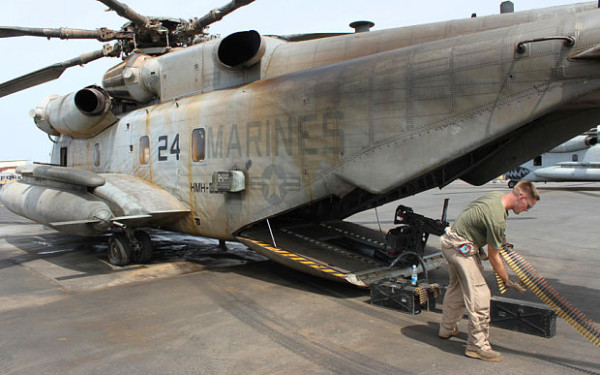PBS: Escaping Eritrea … [Read More...] about ካብ ውሽጢ ቤት ማእሰርታት ኤርትራ
China deal threatens only American military base in Africa
Camp Lemonnier, located in the East African state of Djibouti, is one of America’s key intelligence-gathering posts on Islamic State and al-Qaeda
Attempts by China to increase its strategic involvement in East Africa have raised serious concerns about the future of one of America’s key intelligence-gathering posts on Islamic State and al-Qaeda.
Since the September 11 attacks in 2001, the US military’s Camp Lemonnier, which is located in the East African state of Djibouti, has become the centre for US terrorism operations in the region, gathering vital intelligence on al-Qaeda and Islamic State terror cells operating both in Africa and the Gulf region.

Camp Lemonnier, which houses 4,500 American military personnel and is the only US military base in Africa, is currently undergoing a $1.4 billion (£900m) upgrade. It provides a vital base US Special Forces, fighter planes and helicopters, and well as being a major operational centre for drone operations in Yemen and Somalia.
But, as US president Barack Obama prepares to visit the region later this week, the Pentagon has raised serious concerns over the ability of US forces to continue conducting crucial counter-terrorism operations from Djibouti after the country’s president, Omar Guelleh, concluded a multi-million dollar deal with China. American intelligence officials fear a significant Chinese presence in Djibouti will seriously compromise their own intelligence-gathering operations in the country.
For the past decade Mr Guelleh has relied heavily on aid from America and France, which also has a large military presence in Djibouti, to keep his regime afloat. But following criticism in Congress of Mr Guelleh’s increasingly autocratic leadership, the Djibouti leader has negotiated a new strategic alliance with Beijing, allowing China to take a $185 million stake in the strategically important port of Djibouti, located close to Camp Lemonnier.
For the past two decades Djibouti’s port, a vital supply link between the oil-rich Gulf region and Africa, was administered by DP World, one of the world’s largest port operators. But to demonstrate his independence from Washington, Mr Guelleh earlier this year cancelled the contract with DP World and signed a new contract with Beijing, which has also promised to spend $400 million developing the country’s port facilities.
Now Pentagon officials have raised concerns that China’s deepening commercial involvement in Djibouti could mean Washington will have to relocate sensitive intelligence-gathering operations to more secure locations outside Djibouti where they are better protected from interception by the Chinese.
There are also fears that Mr Guelleh might seek to impose restrictions on the US military’s access to Camp Lemonnier, such as placing limits on the movement of military personnel and military operations conducted from the base.
“The trade deal between Djibouti and China has raised serious security concerns with regard to Camp Lemonnier,” a senior US official told The Telegraph. “There are fears that if President Guelleh gets too close to China then he may be tempted to impose restrictions on US access to the base, which would seriously affect the West’s attempts to collect intelligence on Islamic State and al-Qaeda.”
The importance of the new alliance between Djibouti was demonstrated last month when a Chinese-made tank destroyer was pictured taking part in the country’s annual independence day parade. Chinese military officials have also declined to comment on reports that, apart from running the port, they are also planning to build their own military base in Djibouti.
American diplomats are also resisting attempts by Mr Guelleh to stand for re-election next year, which they argue is unconstitutional. Mr Guelleh has been in power since 1999, and by law should stand down. If he does so then Washington hopes a more reasonable leader will be elected, one more aligned to the Pentagon’s interests.
